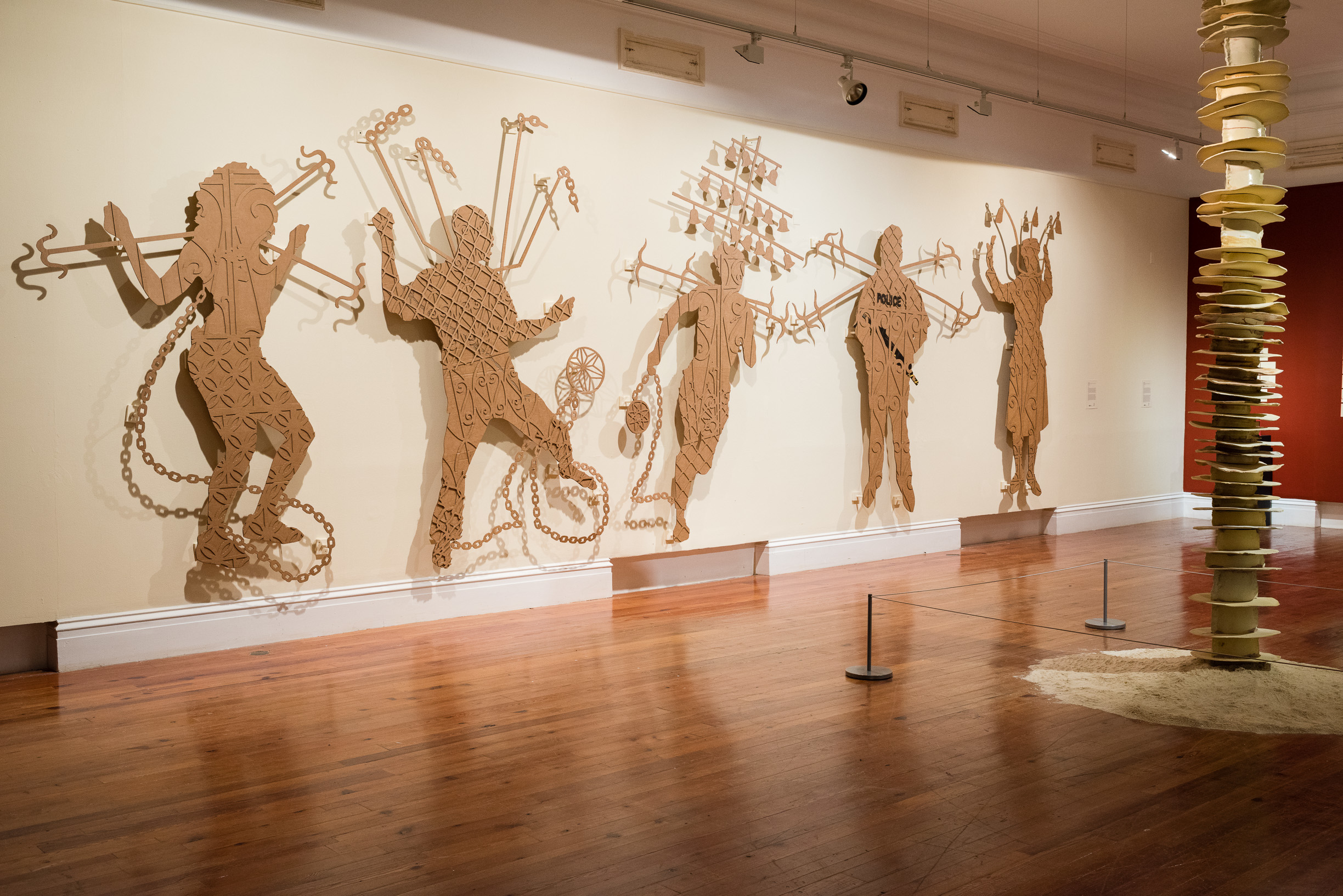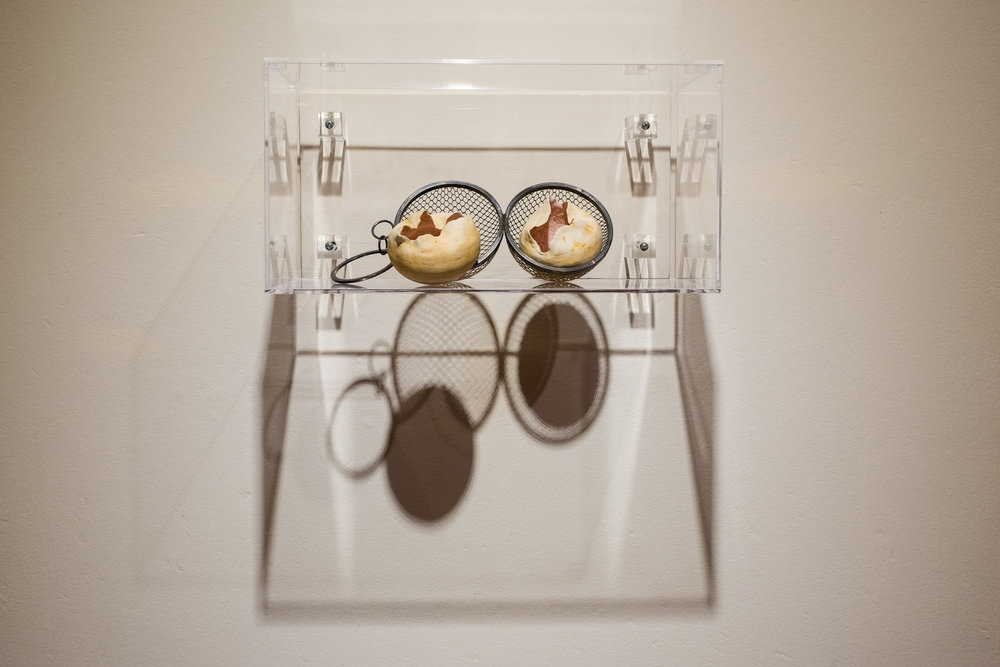
Over a year ago, the National Art Gallery of The Bahamas (NAGB), entered into a formal agreement with the British Council to craft the final iteration of the “Difficult Conversations” series of exhibitions, public conversations and student mentorships, reflecting on the UK’s involvement in the transatlantic slave trade throughout the Caribbean. The NAGB produced, in collaboration with the British Council, “We Suffer to Remain,” a group exhibition that supported the works of John Beadle, Graham Fagen, Sonia Farmer and Anina Major, and a series of public programmes—artists talks, public lectures and film screenings—that spoke in expansive ways about Blackness, ownership, the vestiges, trauma and the legacy of the transatlantic slave trade and the implications of the empire in relation to its colonies.

“cuffed: held in check” (2018) by John Beadle, as seen in “We Suffer To Remain”.
As a developing postcolonial institution, we work to ensure a healthy space for dialogue, problem-solving and the emergence of creative solutions. For this exhibition, we were given a chance to flex our institutional capacity by developing engaging talks, panels, public lectures and a critical partnership, supported by the British Council, with LUX Scotland to develop a 4-part film series, which provoked a rich and vibrant local discourse. Alongside that, we worked collaboratively to develop an exhibition catalogue, which was initially planned only as an e-publication; texts were commissioned by local and international scholars and edited by the British Council review committee.

“To Have and Not Own” (2018) by Anina Major, as seen in “We Suffer To Remain”.
Weeks after the texts had been approved and the design component was being finalised, a unilateral decision was made to remove the British Council’s logo, directors’ and advisors’ texts from the catalogue, with the blanket reasoning that seeing the material altogether was “too political.” The following statement was provided by the British Council:
“The British Council has a long tradition of being involved with artistic work that stimulates and challenges audiences, and always supports the right to freedom of expression. We can successfully deliver challenging arts work because of our ability to adapt to, understand and respect the cultural contexts of each country where we work, in more than 100 countries. Our non-political status is key to this. The exhibition creates a platform for difficult conversations to be addressed by contemporary artists, and we welcome that the accompanying publication meaningfully furthers this discussion. The publication’s directly political content means that it would not be appropriate for it to be perceived as the publication of a non-political organisation, so it will not be branded British Council although we are pleased to co-fund its production.”

“To Have and Not Own” (2018) by Anina Major, as seen in “We Suffer To Remain”.
The NAGB issued the following statement in response and prompted our decision to make permanent the objecthood of this critical document, to ensure it became a printed publication that will launch before the end of July 2018.
“The National Art Gallery of The Bahamas (NAGB) is an institution that welcomes open engagement and the grappling of complex problems, through art, that speaks to our history and assists in the development of our national identity. By the nature of our complicated history, the narratives we have inherited often exclude certain voices and points of view. We now aim to support and engage historically marginalised perspectives to provide a more comprehensive understanding of the past that engenders mutual respect and consideration.
As part of the institution’s mandate to further these conversations, “We Suffer to Remain,” was created specifically to give a national and international platform to those previously silenced around the topic of slavery, its legacy and its repercussions in a post-colonial society. In tackling this profoundly traumatic topic, it would be naïve to expect the conversation or writings around the artworks not to be uncomfortable, potentially confrontational or provocative.
Therefore, the unilateral decision of the British Council to remove their brand from the exhibition’s accompanying catalogue is disappointing and distressing. There are more productive and inclusive ways of working together to ensure clarity and build trust, which were not discussed or explored prior to this decision being delivered to the NAGB.
We believe that this unfortunate decision is a lost opportunity for the British Council to honour its partnership with us and to foster goodwill, especially in the wake of recent events in the UK concerning Caribbean people.”